Still Time to Register for IPFCC’s Intensive Training Seminar
CEU Credits Available for Nurses, Physicians, Social Workers, and Long Term Care Administrators
|
|
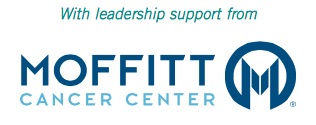

There is still time to register for IPFCC’s internationally acclaimed seminar, Moving Forward with Patient- and Family-Centered Care: Partnerships for Quality and Safety, which will be in Tampa, Florida, November 2-4, 2015. IPFCC is grateful for the leadership support from Moffitt Cancer Center and program support from a coalition of Florida hospitals, in bringing the seminar to Florida. The seminar will be held at the Hilton Tampa Downtown.
Bring your interdisciplinary team to this intensive training seminar, including your long-term care partners. Health care providers, patients and families, working together as partners in care—across the continuum of care—can improve the patient and family experience, and the quality, safety, and the cost of care.
Continuing Education credit is available for:
Nurses may be awarded 22.5 contact hours, based on the approval of the Maryland Nurses Association, an accredited approver by the American Nurses Credentialing Center’s Commission on Accreditation.
Physicians may be awarded up to 27.5 prescribed credit(s) by the American Academy of Family Physicians. Physicians should claim only the credit commensurate with the extent of their participation in the activity.
Social Workers ~ The National Association of Social Workers has approved the seminar for 22.5 Social Work continuing education contact hours.
NEW! Long Term Care Administrators ~ This program has been approved for Continuing Education for 31.50 clock hours and 18.75 participant hours by NAB/NCERS.
To receive a certificate of attendance for CEU purposes, participants are required to attend the program in its entirety, sign-in daily, and complete the daily online seminar evaluations by December 4, 2015.
Seminar Brochure.
Register Now.
|
Profile of Change: How MetroHealth is Partnering with Patients and Families
|
|

The MetroHealth System, located in Cleveland, Ohio, is an integrated health system with an acute care hospital housing the area's only Level I Adult Trauma and Burn Center. MetroHealth operates a skilled nursing facility and a network of 20 locations throughout the community, with more on the way. More than one million patients visit MetroHealth every year. The Emergency Department sees more than 100,000 patients annually. All MetroHealth active physicians are faculty of Case Western Reserve University School of Medicine, an affiliation that began in 1914.
MetroHealth began its Patient- and Family-Centered Care (PFCC) journey in 2013, by establishing an Office of Patient Experience (OPX), including a new Patient- and Family-Centered Care (PFCC) program. Within a year, the OPX implemented Pathways to Patient Experience, a four-hour training program for MetroHealth's 6700 medical providers and staff. The power of patient stories featured in patient videos at this training spurred MetroHealth to establish a Patient and Family Advisory (PFA) Task Force in 2014 to bring the voice of patients and families to hospital operations. The Task Force, which evolved into the PFA Committee, includes two patient and family volunteer advisors, and employees from multiple disciplines including physicians, nurses, and representatives from a number of departments.
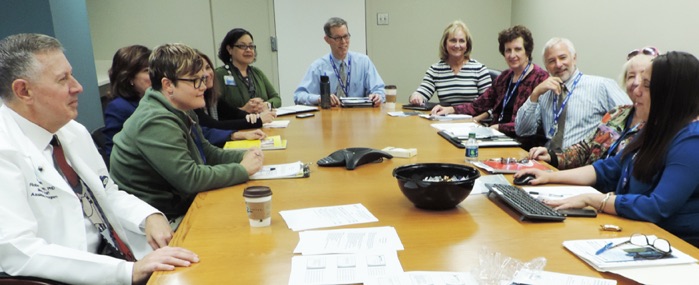
Original PFA Task Force, which includes two Patient and Family Advisors.
Over the course of a year, Bev Johnson, IPFCC President and CEO, visited three times to consult. Bev conducted a walk-through, offering feedback on ways to make areas and signage more patient- and family-centered, met with the PFA Task Force to discuss how to implement the Patient and Family Advisor Program and establish a Patient and Family Advisory Council (PFAC), and met with a group of PFAs who shared updates about their partnering with MetroHealth. Better Health Greater Cleveland provided funding for Bev’s consultation.
In July 2014, OPX recruited Jennifer Lastic as Program Coordinator for the Patient and Family Advisor program. She was responsible for launching all aspects of the PFA program. To jumpstart the program in the fall of 2014, Jennifer attended IPFCC's intensive training seminar, Moving Forward with Patient-and Family-Centered Care: Partnerships for Quality and Safety. According to Jennifer, the seminar "was an amazing educational opportunity. The small group sessions were especially helpful. I was able to share ideas with colleagues from other institutions and complete a project action plan to establish a PFA program and a PFAC at MetroHealth."
In a little more than a year, the PFA Program boasts 44 Patient and Family Advisors! Now, MetroHealth’s PFAs sit on multiple hospital committees and partner with staff on a myriad of other projects, from sharing their personal stories at orientation to participating in the planning of the Critical Care Pavilion/ICU expansion project. The PFAC is working on a variety of initiatives, partnering with staff and leadership to improve the patient and family experience, and advance the safety and quality of care. Read more…
|
Partnering With Patients, Families, and Communities
|
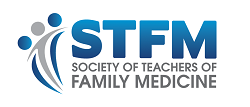 In the September 2015 issue of the Society of Teachers of Family Medicine (STFM) journal, Family Medicine, the article, Partnering With Patients, Families, and Communities,* the authors, Howrey, BT, et al, note that, “Collaborating with patients, families, and communities is a core principle of family medicine.However, the health care system in the United States has grown increasingly complex, fragmented, and difficult to navigate. This system, focused on disease-specific care delivered by specialists, often treats patients as the objects of care rather than as partners in care.” In the September 2015 issue of the Society of Teachers of Family Medicine (STFM) journal, Family Medicine, the article, Partnering With Patients, Families, and Communities,* the authors, Howrey, BT, et al, note that, “Collaborating with patients, families, and communities is a core principle of family medicine.However, the health care system in the United States has grown increasingly complex, fragmented, and difficult to navigate. This system, focused on disease-specific care delivered by specialists, often treats patients as the objects of care rather than as partners in care.”
The Family Medicine for America’s Health (FMAHealth) Initiative “offers an opportunity to challenge the status quo in collaborative care through enhanced patient outreach and community engagement. With a central focus on improving health and achieving the Triple Aim, the FMAHealth Initiativerecognizes that successful transformation of the US health care system requires collaborative partnerships between clinicians, patients, families, and communities.” Read more about the FMAHealth Initiative in the related article in the sidebar.
The authors describe “the current state and future vision of key initiatives in patient and community collaboration…" and “seek to provide a vision and call to action to go beyond talking about engagement as a buzzword, moving toward meaningful partnerships with patients, families, and communities….This initiative is an opportunity to push engagement from consultation toward partnership at the level of theencounter, as well as the design of care and policy.”
The authors set forth several areas for engagement:
- Shared Decision Making
- Patient, Family, and Community Education and Outreach
- Adoption of Emerging and Maturing Technology
- Partnering with Patients and Families in Practice and System Transformation
- Patient and Family Involvement in Research and Policy Change
The authors conclude, “FMAHealth provides an opportunity to articulate and implement mechanisms for sustained patient and family voices in health care delivery, health policy, and politics. As a discipline, family medicine must encourage patients, families, and communities to demand change as consumers, as citizens, and as voters by fully partnering with them to accelerate transformation. Ongoing and sustained partnerships are central to the ability of family medicine to address the Triple Aim, as well as our likelihood to exist and thrive in the changing health care arena. We must, as a discipline, act in concert and in full collaboration with patients, families, and communities…”
Read the entire article.
* Citation:
Howrey BT, Thompson BL, Borkan J, Kennedy LB, Hughes LS, Johnson BH, Likumahuwa-Ackman S, Westfall JM, Davis A, deGruy F. Partnering With Patients, Families, and Communities. Fam Med 2015;47(8):604-611.
|
AHRQ’s Research Conference, Producing Evidence and Engaging Partners to Improve Healthcare
|
|

The AHRQ 2015 Research Conference, Producing Evidence and Engaging Partners to Improve Healthcare,co-sponsored by AcademyHealth, held October 4-6, 2015 in Crystal City, VA, provided an opportunity to share the results and impact of AHRQ-sponsored research, data and tools, and their contribution to measurable improvements in health care. The conference brought together authorities in health services research and practice to participate in sessions focused on addressing today’s challenges in improving quality, safety, access, and value in health care.
Bev Johnson, IPFCC’s President and CEO, along with Alice Rivlin, Director of the Brookings Institution’s Health Policy Center, and Bruce Siegel, President and CEO of America’s Essential Hospitals, were the panelists for the 2015 Keynote Plenary Session.
In her remarks, Bev Johnson noted that providers “aren’t trained to partner effectively. They don’t have the communication skills to partner with patients and families, or across disciplines, or with community health workers and coaches.” She also mentioned the additional issue that more than half of hospitals restrict family presence, noting “We isolate patients at the most vulnerable time from the people who know them best and then wonder why we can’t get them out of the hospital safely. We need to work on this.” Additionally, Bev stated that a broader definition of family, as defined by the patient, would help. Read more
AHRQ and AcademyHealth also partnered with the Patient-Centered Outcomes Research Institute (PCORI) by hosting joint sessions October 6, 2015, as part of the AHRQ research conference and PCORI’s first annual meeting. The joint sessions addressed key issues in dissemination and implementation of patient-centered outcomes research. The PCORI annual meeting highlighted the theme of patient and family engagement in all phases of research.
|
IPFCC Partners with Patient-Centered Primary Care Collaborative (PCPCC) in CMS Transforming Clinical Practice Initiative To Build Effective Partnerships with Patients and Families
|
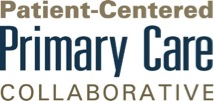 The Patient-Centered Primary Care Collaborative (PCPCC) is one of 39 health care collaborative networks selected by CMS to participate in the Transforming Clinical Practice Initiative.The PCPCC, with its partners—IPFCC, YMCA of the USA (Y-USA), and Planetree—will “provide technical assistance support to help equip clinicians across the country with tools, information, and network support needed to improve quality of care, increase patients' access to information, and spend health care dollars more wisely.” The Patient-Centered Primary Care Collaborative (PCPCC) is one of 39 health care collaborative networks selected by CMS to participate in the Transforming Clinical Practice Initiative.The PCPCC, with its partners—IPFCC, YMCA of the USA (Y-USA), and Planetree—will “provide technical assistance support to help equip clinicians across the country with tools, information, and network support needed to improve quality of care, increase patients' access to information, and spend health care dollars more wisely.”
According to Marci Nielsen, PCPCC's CEO, "It is our contention—and that of our broad and diverse constituency—that the U.S. health care system will only achieve its full potential by first improving the way we deliver primary care, in partnership with patients, families, and communities." According to Bev Johnson, President and CEO of IPFCC and PCPCC Board Director, “Without patient insight, we often create solutions that are costly, do not improve care, and fail to better health outcomes....When we listen, patients share valuable information that we need to hear and act on.”
Bev stated, as a part of this project, “IPFCC will have the opportunity to assist clinicians in developing effective partnerships with patients and families for quality improvement and the redesign of primary care. Together, working with PCPCC and its network of more than 1,300 organizations, we will build a network of patient and family advisors with experience and expertise in collaborating with primary care practices to develop patient- and family-centered medical homes."
Learn more…
|
|
In This Issue |
- Still Time to Register for IPFCC’s Intensive Training Seminar ~ Continuing Education Credits Available for Nurses, Physicians, Social Workers, and Long Term Care Administrators
- Profile of Change: How MetroHealth is Partnering with Patients and Families
- Partnering With Patients, Families, and Communities
- AHRQ’s Research Conference, Producing Evidence and Engaging Partners to Improve Healthcare
- IPFCC Partners with Patient-Centered Primary Care Collaborative (PCPCC) in CMS Transforming Clinical Practice Initiative To Build Effective Partnerships with Patients and Families
- Save the Date for IPFCC’s International Conference
- Patient Advisory Councils Included in the Family Medicine for America's Health Strategic Agenda
- October is Health Literacy Month
- October is Patient-Centered Awareness Month
|
Save the Date for IPFCC’s International Conference
|
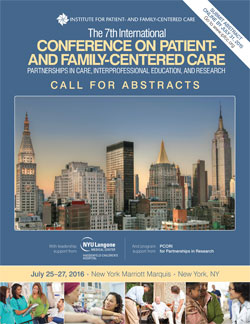
Save the date for IPFCC’s 7th International Conference on Patient- and Family-Centered Care: Partnerships in Care, Interprofessional Education, and Research to be held in New York City, July 25-27, 2016.
IPFCC received a great response to its call for abstracts. The international abstract review committee is reviewing submissions; decisions will be announced in December.
Information about the Conference Program will be available in January. 2016.
Conference registration is open, and you can make your hotel reservations now.
With leadership support from:
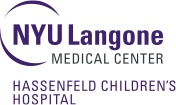
And program support from:
|
IPFCC Fall Webinars
|
|
IPFCC will be offering the following webinars this fall:
A Beginner's Guide: Advancing Patient- and Family-Centered Care in Hospitals and Primary and Ambulatory Care Practices
Tuesday, October 27, 2015
Join Julie Moretz, Associate Vice Chancellor for Patient- and Family-Centered Care at the University of Arkansas for Medical Sciences, and Marie Abraham, Vice President, Programming and Publications, IPFCC, to explore patient- and family centered care. Learn fundamental strategies for building infrastructure in your organization and hear how patient- and family-centered care can improve quality, safety, and the experience of care.
Measuring Patient- and Family-Centered Practice and the Partnerships with Patients and Families
November 17, 2015
Join Bev Johnson, IPFCC’s President and CEO, to learn best practices for establishing a system to track and measure the process and outcomes of patient- and family-centered care.
Better Together: A How-To for Changing the Concept of Families as “Visitors” in Hospitals
November 19, 2015
Hear Deborah Dokken, a consultant and faculty member for IPFCC, share information about the importance of family presence and participation as well as the many tools available in IPFCC’s Better Together: Partnering with Families campaign, which calls on all hospitals to eliminate restrictive visiting hours and to welcome patients’ families as partners in care, 24/7.
You Want Me To Do WHAT? Defining the Role of a Patient- and Family-Centered Care Staff Liaison
December 15, 2015
Join Mary Minniti, IPFCC's Senior Policy and Program Specialist, to learn about the insights of staff liaisons working across North America about what it takes to experience success and build a positive patient- and family-centered program.
IPFCC’s webinars are a cost-effective educational resource. Cost is per line, so a group of any size is welcome to participate in the same room on one line. Handouts and supplemental resources are included with registration.
Learn more about webinar faculty, learning objectives, and Pinwheel Sponsor discounts.
|
Patient Advisory Councils Included in the Family Medicine for America's Health Strategic Agenda
|
|

The Family Medicine for America's Health (FMAHealth) is a collaboration of eight leading family medicine organizations to drive continued improvement of the U.S. health care system and demonstrate the value of true primary care.
Glen Stream, President and Board Chair, FMAHealth, stated, "In terms of health care, our country spends more and gets less than any other industrialized country in the world. The only way to flip that is by strengthening the nation's primary care system. During the next four years—through outreach to the public and collaboration with our colleagues in family medicine and across the health care delivery system—we will work to transform our health care system and ensure the health of all Americans."
FMAHealth recently announced its goals to transform the primary care system in the USA. One of the six key goals of the Family Medicine for America's Health initiative is “Engagement: Encourage every practice to have a patient advisory council or similar mechanism to facilitate ongoing patient engagement.”
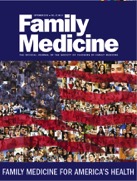
This goal of engagement is described in the article, Partnering With Patients, Families, and Communities, in the September special edition of Family Medicine, the official journal of the Society of Teachers of Family Medicine. See the related article in the main column in this issue of Pinwheel Pages. The other five goals to modernize family medicine and primary care, (access, transparency, integration, recruitment, and payment) are also explored in more depth in the September issue of Family Medicine.
~~~~~~~~~~~~~~~~~~
IPFCC offers many resources to support establishing patient and family advisory councils and other collaborative endeavors. For example, learn more about establishing advisory councils in
Essential Allies: Patient, Resident, and Family Advisors: A Guide for Staff Liaisons.
Read about the accomplishments of many patient and family advisory councils.
Want to jump start setting up or learn ways to sustain an advisory council?
Send a team to IPFCC’s November Intensive Training Seminar.
Register now.
|
Links
|
|
|
Previous Issues |
|
|
About Us
|
Founded in 1992 as a nonprofit organization, the Institute for Patient- and Family-Centered Care works to advance the understanding and practice of patient- and family-centered care in all settings where individuals and families receive health care.
|
|